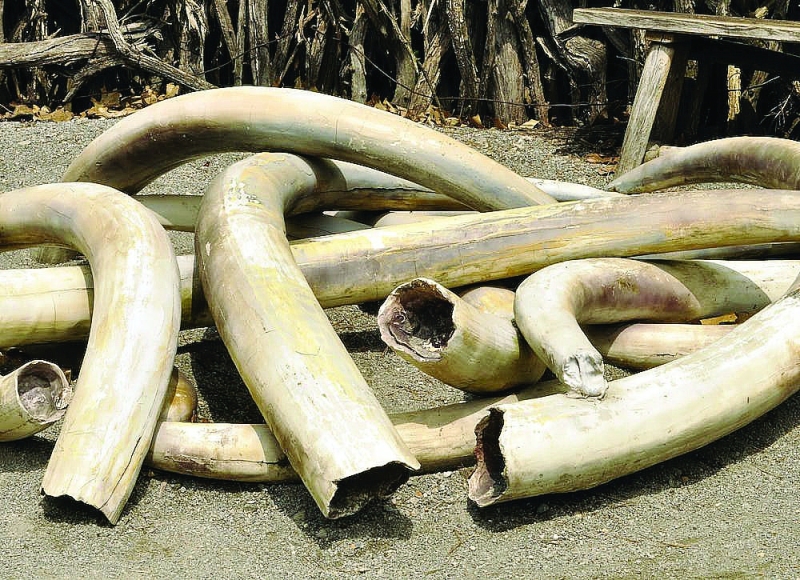Hunting generates P42.8m amid UK ban fear
Spira Tlhankane | Monday March 17, 2025 11:16


The Ministry issues hunting quotas, among others to local communities every year. Minister of Environment and Tourism, Wynter Mmolotsi told Parliament this week that besides the P42.8 million a total of P 15.6 million was realized from the sale of special elephant quotas to support elephant conservation and community-led projects within the elephant range.
Mmolotsi highlighted that as they make millions from these quotas, the country is facing opposition from animal rights organisations to their policy of sustainable wildlife utilisation of using hunting as a management tool and empowerment to local communities.
“The Ministry working with the hunting industry and affected community trusts stepped up efforts to counter this growing opposition to sustainable hunting through engagements carried out in the UK and Germany. The Ministry will continue to engage the international community on the importance of sustainable utilisation to our economy and the conservation of our wildlife populations. Some countries such as Canada and Belgium have completely banned trophy imports,” Mmolotsi said. Botswana is among the six southern African countries that have expressed disappointment with the new efforts by the British Labour Party to introduce a bill that seeks to ban the importation of wildlife trophies from Africa.
The Hunting Trophies (Import Prohibition) Bill failed in 2023 when 11 peers made the bill run out of time by tabling more than 60 amendments they insisted on debating individually. Last December, the UK Parliamentary Under-Secretary of State for Environment, Food and Rural Affairs Mary Creagh revealed that the new UK government has committed to banning the import of hunting trophies and considering the most effective way to do so.
Creagh blamed the failed 2023 bill on the Conservatives who ruled for 14 years before The Labour Party took over last year. “They cannot be trusted on animal welfare. They failed to pass the Hunting Trophies (Import Prohibition) Bill, which would have stopped selfish hunters who slaughter and display endangered animals’ body parts for their perverse self-gratification”, the legislator said.
Botswana has been worried that the importation ban of legally harvested wildlife trophies will negatively impact wildlife authorities including Professional Hunting Associations and Community-Based Support Organisations from across Africa, thereby drastically reducing hunting incentives for Britons to hunt abroad, primarily in Africa.
The country has in the past expressed that if the Bill is passed by Parliament, it would severely affect Botswana's wildlife management. Speaking of wildlife management, Mmolotsi also told parliament that to manage the wildlife population, the country is implementing a combination of both consumptive and non-consumptive utilisation of wildlife resources to derive optimum economic benefit, particularly for communities.
Mmolotsi said he was elated to inform parliament that Botswana remains a stronghold for many wildlife species of conservation concern and makes it rank number one in the preservation of megafauna in the world. “This is made possible by the implementation of sound wildlife policies, effective legislation and management strategies, and, above all, a strong commitment and financial support of the government, partners and local communities,” he said.
Mmolotsi also noted that the main challenges that the Ministry faces in managing wildlife are poaching and human-wildlife conflict. “Poaching incidents of endangered CITES-listed species have increased by 16% for the period under review. To combat this illegal wildlife crime, the ministry is strengthening and rearming the responsible authority, enhancing inter-agency collaboration, and intensifying cooperation with neighbouring countries. Furthermore, modern technologies are being implemented to improve anti-poaching efforts. As part of our comprehensive wildlife management and monitoring strategy, a census of wildlife resources will be conducted in the coming financial year,” Mmolotsi said.
The Francistown South legislator added that human-wildlife conflict cases have reduced from 9,010 to 6,325. He disclosed that funds amounting to P25 million were spent on compensating farmers for wildlife damages in the past calendar year compared to P 23.8 million this calendar year.
“Despite this reduction, human-wildlife conflict remains a concern, and the Ministry continues to implement different initiatives and mitigation measures to address it. These include but are not limited to the construction of a 140km non-lethal electric fence along the southern boundaries of Makgadikgadi/Nxai Pan National Park, annual preventative maintenance of game-proof fences throughout the country, development of a five-year National Human-Wildlife Conflict Strategy and Action Plan (2025 to 2030) in collaboration with the Okavango Research Institute (ORI), which is expected to be completed in June 2025,” he further announced.
He said they will also review the compensation rates and animals that can be compensated and that the revised compensation rates will be submitted to the Cabinet for consideration by the end of June 2025. “In our conservation efforts, we need to be mindful that our Government is human rights-centric. In these efforts, I am here to reiterate once again that the Ministry will open the Sedudu-Ngoma transit route in the Chobe National Park which will operate for 24 hours effective April 1, 2025. This standpoint will allow people to enjoy their freedom of movement,” he pointed out.
